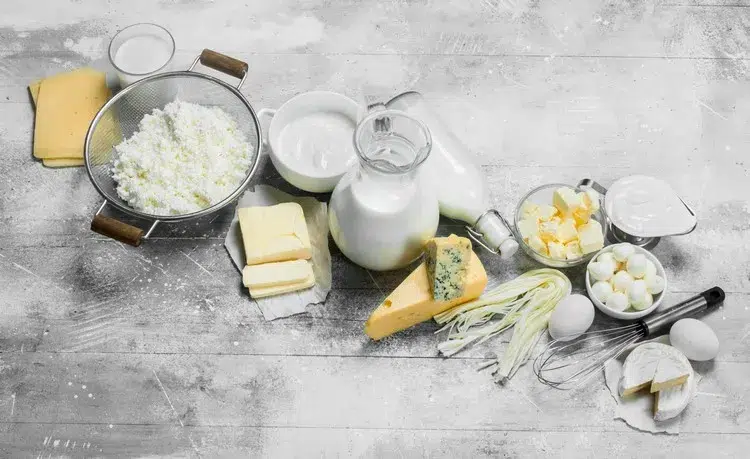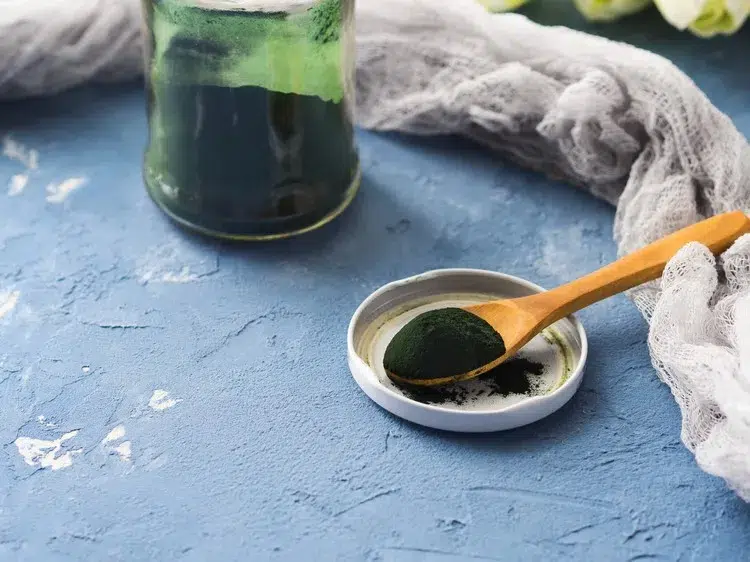Also known as hay fever, pollen allergies affect a large number of people and can cause quite serious symptoms. As their season is officially here, today we take a look at a phenomenon that you probably underestimate. Did you know that food matters too? Do you know which foods to avoid if you have pollen allergy and which ones to eat? And what steps can you take to limit the effects of hay fever? We’ll tell you all about it!

What Foods to Avoid if You Have Pollen Allergy?
If you suffer from pollen allergy, you know that when an allergic reaction occurs, antibodies trigger the release of histamine. This triggers a cascade of inflammatory reactions, which causes the famous hay fever symptoms. But what about the relationship between pollen allergy and food? Well, some foods are naturally rich in histamine, and eating them can trigger other reactions, but these are generally not important. In this case, we speak of a cross-reaction. It is therefore recommended to be familiar with the foods in question in order to avoid them during pollination. Here is an overview.
Fruits
Rest assured, we’re not talking about all fruits, just those that can aggravate your pollen allergy. These include oranges, berries and melons.
Foods to Avoid if You Have Pollen Allergy: Vegetables
Among the foods to avoid in case of pollen allergy are also certain vegetables including zucchini, artichoke and celery. However, if you have a strong desire to eat them, be sure to cook them well instead of eating them raw.
Spicy foods
Eating spicy foods (in reasonable amounts, of course) has health benefits. However, these foods should be avoided urgently by people with pollen allergy. Why? Because of capsaicin, the chemical compound that gives chilies their intensity. It triggers allergy-like symptoms and could therefore worsen your condition during pollen seasons.
Dairy products
Dairy products contain arachidonic acid which increases the production of leukotrienes. Leukotrienes obstruct the bronchial tubes, making it difficult for air to pass through. As a result, mucus forms, aggravating the symptoms of seasonal allergies. So avoid dairy products, and opt for plant-based milks such as almond, coconut and oat milk.
Alcohol
Alcohol tends to dilate blood vessels, which can make allergic sniffles worse. It is better to avoid alcohol completely or drink it in reasonable quantities.
Foods to Avoid According to the Type of Pollen Allergy
Now that you know what foods to avoid if you have pollen allergy in general, it’s time for some more clarification. What exactly does this mean? Identifying which foods to ban from the menu according to the type of seasonal allergy you suffer from. In Europe, the main causes of allergic reactions due to pollen include grasses and ragweed.
Foods to Avoid If You Have a Grass Pollen Allergy
- Celery
- Tomatoes
- Figs
- Oranges
- Watermelon and melon
- Peaches
- Kiwi
Foods to Avoid if You Have an Allergy to Ragweed Pollen
- Fruits: Bananas, melon, watermelon
- Vegetables: Cucumbers, green peppers, artichokes, tomatoes, zucchini.
- Teas: Chamomile, dandelion, echinacea, hibiscus.
- Other: Honey, sunflower oil and seeds.

What to Eat if You Have Pollen Allergy?
Have you heard of natural antihistamine foods? These foods could help relieve pollen allergies and improve your daily life. Find out more below:
- Ginger
- Turmeric
- Salmon and other fatty fish (mackerel, sardines, tuna, etc.)
- Onions
- Nettle is a quite powerful natural antihistamine food
- Green tea
- Spirulina
- Pineapple
Simple Steps to Relieve Pollen Allergies
Once we’ve learned which foods are good for pollen allergy, let’s see some simple and effective actions that can limit reactions:
- Regular hair washing (every evening) to remove pollen accumulated during the day.
- Ventilate the home early in the morning or late at night when there are fewer pollens.
- During pollen season, dust more frequently.
- Avoid drying laundry and clothes outside, as they can catch pollen.
- Limit the use of the following products as much as possible: home fragrances, solvents, household chemicals, etc. They are likely to make your symptoms worse.
Read also: Fall Allergies: How to Recognize Them and Are They Treatable?
